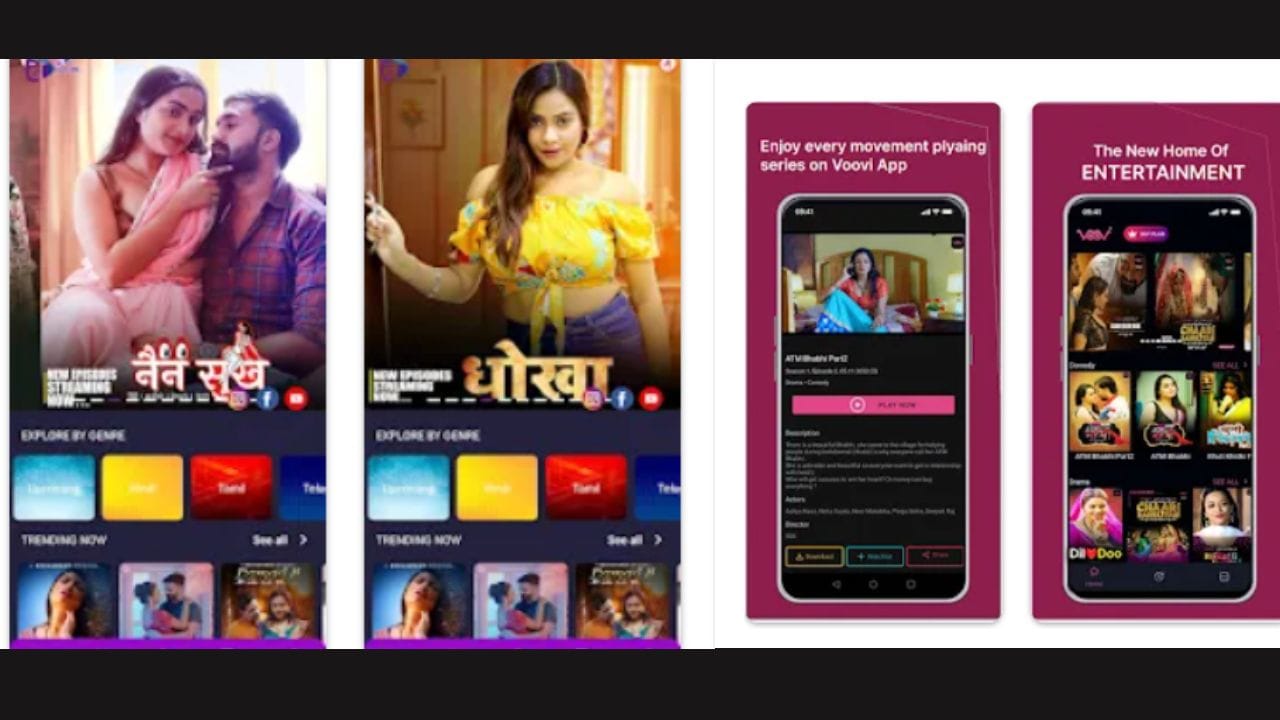The Ministry of Information & Broadcasting (I&B) has blocked 18 OTT platforms publishing obscene, vulgar, and, in some instances, pornographic content. The government has also disabled public access to 19 websites, 10 apps (7 on Google Play Store, 3 on Apple App Store), and 57 social media accounts associated with these platforms.
The list of platforms blocked for violations-
Voovi
Yessma
Neon X VIP
Besharams
Dreams Films
MoodX
Uncut Adda
Tri Flicks
Rabbit
X Prime
Prime Play
Hot Shots VIP
Mojflix
Hunters
Xtramood
Fugi
Chikooflix
Neufliks
12 accounts were blocked on Facebook, 17 on Instagram, 16 on X (formerly known as Twitter) and 12 on YouTube.
One of the OTT apps amassed more than 1 crore downloads, while two others had over 50 lakh downloads on the Google Play Store. Additionally, these OTT platforms extensively utilized social media to disseminate trailers, specific scenes, and external links aimed at attracting audiences to their websites and apps. The social media accounts of the concerned OTT platforms had a cumulative followership of over 32 lakh users.
Besharams, for example, has over 100,000 app downloads on the Play Store. It is Webworld Multimedia LLP Product fully loaded with entertaining content, as per the description. “Get popular movies, amazing web series and more, all in the language you prefer. App is bundled with power pack features such as save offline videos, TV casting, create watchlist, etc. to make your life easier. Download Besharams App now and enter in the world of entertainment.” It reads. Its X account now reads: @BesharamsApp has been withheld in IN in response to a legal demand.
Voovi has over 10 million app downloads on Play Store.
Its About section reads: “Video on demand(V.O.D.) services are now in great demand and have almost replaced the way how people watch movies and TV shows. Video streaming sites have brought entertainment on your fingertips with easy accessibility. Voovi is one of the premium video streaming apps available today.
1. Voovi offers you a wide collection of movies and shows to choose from in HD.
2. With Voovi you can watch innumerable content anytime, anywhere.”
Govt clamp down
Union Minister for Information & Broadcasting Anurag Singh Thakur has repeatedly emphasized the responsibility of the platforms to not propagate obscenity, vulgarity and abuse under the guise of ‘creative expression’. On 12 March, 2024, Thakur announced that 18 OTT platforms publishing obscene and vulgar content have been taken down.
The recent decision was taken under the provisions of the Information Technology Act, 2000 in consultation with other Ministries and Departments of the Government of India, and domain experts specializing in media and entertainment, women’s rights, and child rights.
What is the nature of content?
The ministry said a significant portion of the content hosted on these platforms was found to be obscene, vulgar, and portrayed women in a demeaning manner. It depicted nudity and sexual acts in various inappropriate contexts, such as relationships between teachers and students, incestuous family relationships, etc. The content included sexual innuendos and, in some instances, prolonged segments of pornographic and sexually explicit scenes devoid of any thematic or societal relevance.
The content was determined to be prima facie in violation of Section 67 and 67A of the IT Act, Section 292 of the IPC, and Section 4 of the Indecent Representation of Women (Prohibition) Act, 1986.
Content regulation on OTT
As broadcasters and OTT stakeholders continue to debate over the Ministry’s role in content regulation and the new Content Evaluation Committee in the Broadcasting Services Bill, the Ministry of Information and Broadcasting (MIB) has clarified its stance.
In a previous interview with Storyboard18, former MIB secretary Apurva Chandra, had said last year, “The existing regulatory landscape for media is spread across various Acts like the Indian Telegraph Act, 1885, the Cable Television Networks (Regulation) Act, and the IT Act for OTT. The new bill consolidates these regulations into different chapters, recognising the unique aspects of each domain. Notably, the regulation for OTT platforms is a light touch regulation and not the same as the others.”
On the growth prospect of the OTT vertical, the Ministry has been consistently assuring the sector that the government does not want prescriptive regulations like that of linear broadcasting. However, there are some concerns in the investor community.
To which Chandra had said, “If you look at the draft recommendations of the bill, the content evaluation committee is a crucial aspect of it. This committee extends its oversight not only to OTT platforms but also to broadcasters, entertainment channels, and radio programs. We believe its significance lies in addressing the current scenario where self-regulation is predominant. While platforms and channels are self-regulating, there’s a need for a content regulation committee to ensure appropriateness for different age groups, be it a nine-year-old, a seven-year-old, a 16-year-old, or a general audience.”
Read More: MIB blocks 18 OTT platforms for showing obscene and vulgar content
